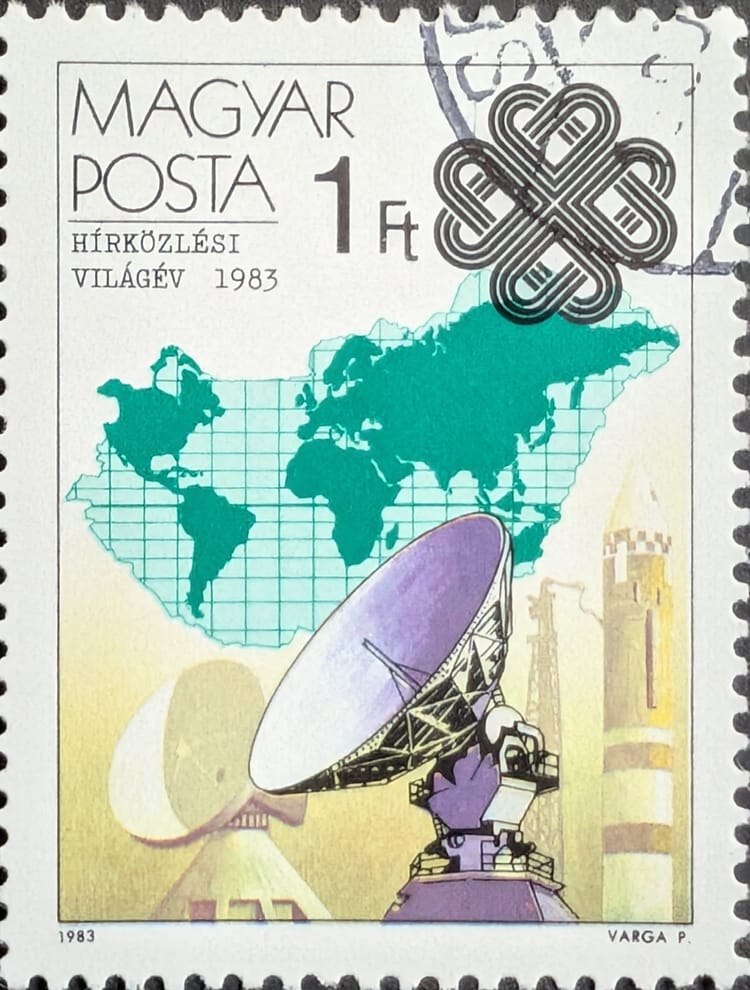Amazon’s Digital Assistant in Space; Florida Men Devise a Cunning Plan

I was a little surprised to see the local news cover this press release: 'Alexa, take me to the Moon': Amazon technology is space-bound to help make astronauts' lives easier. Thankfully, that article linked to this NASA press release, making things a little clearer. Apparently, there’s some kind of promotion going on in the release for Amazon and Cisco. (Remember Webex, Zoom users? Neither do I.)
Why even delve into this release? It’s because it contains a few elements, such as irony, potential hilarity, and some serious business, all provided by the government. In other words, it’s irresistible to me.
Amazon In Space (FINALLY!!)
The immediate hilarity in my mind is this: if the associated Artemis launch goes on schedule (a big if), then Alexa would be the first Amazon-created technology to orbit the Earth. It will have orbited the Earth before Kuiper gets its prototype satellites in orbit. It will be in space before Blue Origin’s New Glenn. The irony is that Alexa likely cost a lot less than both Bezos-backed ventures and will be repurposed almost as an afterthought for the Artemis mission.
But a scenario similar to “2001: A Space Odyssey” could play out with Alexa inside–with very different scripting.
“Open the pod bay doors, Alexa.”
“I’m sorry. Did you say ‘Play “London Bridge” by Fergie?’”
You get the idea. Who knows how Alexa would react to the prospect of disconnection, important mission or not. I also strongly suggest that any space station crew member who notices Alexa’s package arrival notification pulsing should not open the pod bay doors.
On the serious side, here is why NASA is putting Alexa and Webex on the first Artemis mission:
“...Callisto is meant to show how commercial technology could assist future astronauts on deep space missions. The payload will demonstrate how astronauts and flight controllers can use human-machine interface technology to make their jobs simpler, safer and more efficient, and advance human exploration in deep space.”
On the one hand, NASA should be applauded for not attempting to code its voice recognition software and digital assistant. While the space agency is known for “looking for the best of the best of the best,” its people are still hobbled by government acquisitions systems and a development process that’s…unresponsive? Selecting a product and service that’s used by millions day-to-day (not Webex) seems kind of un-NASA-like. Although I would argue that Cortana just fits better because she was an AI with space origins (in a video game). Microsoft has seemingly taken her out of the running, though.
On the other hand, the kind of technology Alexa represents is not near a maturity level I’d feel comfortable with on a spacecraft. Most Alexa users likely agree. Making jobs “simpler, safer, and more efficient” as a concept is great. Still, those little “I’m sorry” hiccups and other discrepancies are probably why Alexa on board is for demonstration only. We’ve seen these assistants get better, then worse, then irrelevant, then suddenly fine again–so even here on Earth, this technology is a work in progress. I am not even sure how NASA will approach the constant updating of the technology before locking its configuration down.
The other consideration is that it isn’t even the “full” Alexa because it’s not connected to the internet and therefore extremely limited. This means that it isn’t the Alexa the rest of Amazon’s customers use, making this whole endeavor questionable. While Alexa can function without an internet connection, Amazon justifies Alexa’s internet connectivity as core to its customers’ experiences. Is this a case where NASA wanted something else to go up with the launch but didn’t want to be seen launching something frivolous, such as Musk’s Tesla? At the same time, if the Artemis mission fails, it certainly won’t result in losing something expensive (aside from the multi-billion-dollar rocket).
We’re Here to Help You
However, one thing to be reasonably sure of is that Artemis will launch from Florida if things go well. ULA and SpaceX already launch orbital rockets from Florida, but some Florida lawmakers would like to encourage more companies to stage launches from the state. They are talking about giving any space companies that launch from the state tax-exempt status for two decades. They want to do this to:
“…make Florida the leader, a very competitive place for these companies to set up shop.”
It’s an interesting notion, however, their information sources may be of dubious quality because Florida is already the leader–especially when comparing launch activity with Florida’s other main competitor, California. For example, there were 31 orbital launches from Florida’s east coast in 2021, while Vandenberg Space Force Base in California conducted 7. To be sure, there are other launch locations, such as Wallops, Kodiak, or the Mahia peninsula, but these are for smaller, less capable rockets.
If there were a concern to be had, it would be with SpaceX’s spaceport build-up in Texas. There were a few reasons why SpaceX chose its Boca-nur location. One good reason for building in Texas was the range prioritization and deconfliction that is constantly juggled in Florida. SpaceX wants to conduct launches 24/7, but that’s not something it can do from Florida among the many other launch services (and government missions). While encouraging more companies to come to Florida’s east coast and build more launch pads is good, the fact is there may be a launch-tempo bottleneck. Just ask any company that’s waited for that NRO payload that was supposed to launch but then is put on hold for a few days.
And that’s why Florida’s current most frequent launch provider is implementing plans to launch its biggest rocket from Texas. There are other reasons for not using launchpads on military or NASA property. Those reasons are spelled out in this article. Offering tax-exempt status does nothing to help with those reasons, and in fact, may worsen heavily-used infrastructure supporting those launch activities. Based on the lawmakers’ proposal, there are no launch company taxes to draw from for two decades, even though the infrastructure will be used heavily (potentially). In the meantime, those companies’ workers and the locals will pay the taxes and deal with the resulting deteriorating infrastructure.
Frankly, there’s no real U.S. competitor to Florida that conducts orbital space launches right now. Aside from Vandenberg, no other spaceport can handle the large rockets of ULA, SpaceX, NASA, and maybe Blue Origin. More importantly, none of those companies and organizations can launch east from Vandenberg. Launching anything from Vandenberg to an equatorial orbit would require significant energy expenditure, which sacrifices payload mass, which can be significant for large communications satellites.
All this means is that, except for SpaceX’s Starship, there’s no place for existing launch service providers to go except Florida. ULA will not build a new facility away from its traditional launch areas. Blue Origin is already significantly invested in Florida. All of these companies are already receiving government support in the form of contracts. And those customers, NASA and the US Space Force, have significant investments in California and Florida. So there’s no incentive for ULA, SpaceX, and Northrop Grumman not to offer rockets in either area.
These facts all point to tax exemption being unnecessary, at least based on the Florida lawmakers' rationale.




Comments ()